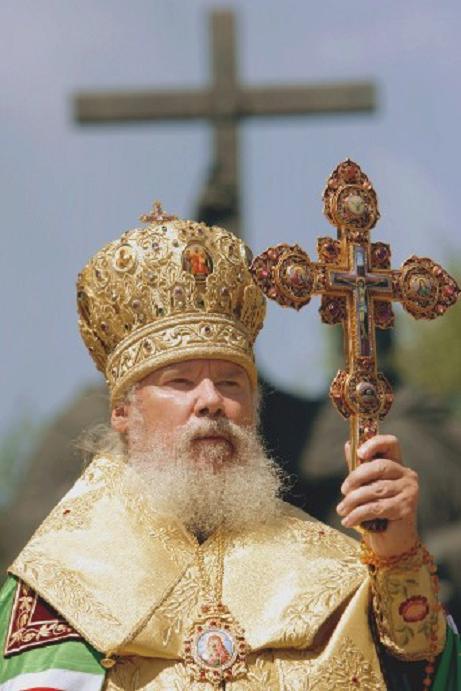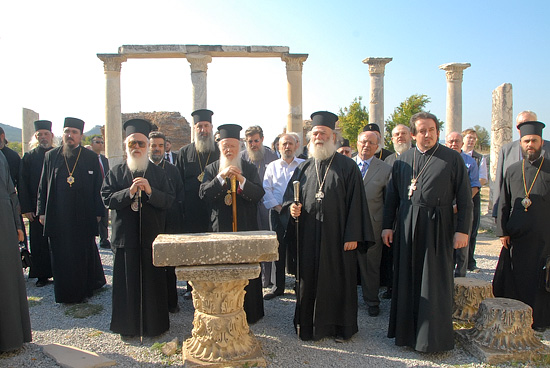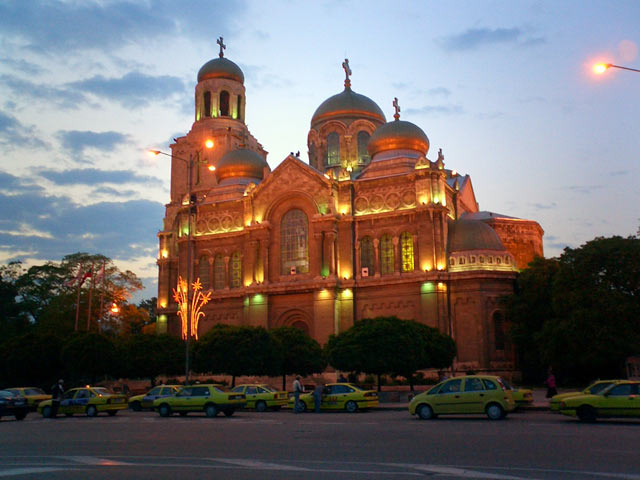It has not so much been a slow news week as I just returned from traveling and had little posting time. Here is a statement in response to this thread that I think stands on its own merit. The points will be familiar to anyone who has entered into a discussion of this topic.
 Reading through the thread, I am increasingly concerned by what I read here. There seems to be a desire on the part of some to make all council ecumenical. It appears to me that (and again, only for some) any suggestion that a council is not ecumenical calls into question either (a) the integrity of the teaching or, and this is much worse, (b) the integrity of the speaker who points out that the council is not ecumenical.
Reading through the thread, I am increasingly concerned by what I read here. There seems to be a desire on the part of some to make all council ecumenical. It appears to me that (and again, only for some) any suggestion that a council is not ecumenical calls into question either (a) the integrity of the teaching or, and this is much worse, (b) the integrity of the speaker who points out that the council is not ecumenical.Reading through the comments, and again so it appears to me, there seems to be a desire on the part of some to claim for their own positions an ecumenical authority and to object when that authority is denied to them. A council need not be ecumenical for its teaching to be true. And the true teaching of true council, whether that council is ecumenical or not, does not exhaust the Mysteries of the Faith.
A council, indeed the dogmatic tradition of the Church, has primarily a negative function–it tells us the limits beyond which we cannot go with the surety of faith. The Church, and here I paraphrase the late Fr Georges Florvoksy, does not offer us a map to the Kingdom of God. Rather what we are offered in Holy Tradition–one important element of which are the teachings of the councils, ecumenical and local–are the Keys to the Kingdom.
It is up to each of us to personally take up those Keys and open the Gates to the Kingdom. And once the Gates are open, it is again up to each of us personally to enter in. We take up the Keys and enter in by way of the Sacraments, the life of prayer and our own asceticism.
Dogmatic definitions, no matter how well we understand them intellectually, or of no value unless we are men and women of prayer and humility.
 It is worth noting, at least for my own spiritual life, that on the second to last Sunday before the Great and Holy Fast, when the Church asks us to reflect on the Last Judgment and She does so by calling to mind Our Lord's teaching not about dogma, but what in the West are the corporal works of mercy (Mt25.31-46).
It is worth noting, at least for my own spiritual life, that on the second to last Sunday before the Great and Holy Fast, when the Church asks us to reflect on the Last Judgment and She does so by calling to mind Our Lord's teaching not about dogma, but what in the West are the corporal works of mercy (Mt25.31-46).While we must not push this too far, it is worth noting what absent is from our Lord's teaching about how I will be judged and what rather more typically consumes our attention when in internet forums when Orthodox Christians gather to comment about the faith.
It is only after we have gone through all this preparation embodied for us in the Triodion (orthodoxwiki: the Lenten Triodion is the service book of the Orthodox Church that provides the texts for the divine services for the pre-Lenten weeks of preparation, Great Lent, and Holy Week. It is called the triodion because the canons appointed for Orthros during this period are composed of three odes each.) that we are able, and again with prayer and fasting, in a spirit of humility, mutual forgiveness, and a committed to the tangible care of our sick, naked, imprisoned the sick and forgotten of this world that we are now able to profess the Orthodox faith.
But, and here I return to Fr Georges, if we take up the Keys to the Kingdom, open the Gates and enter in as we sing during the Great Fast, what do we see but the Glory of God unmediated. This Glory consumes the creation without destroying it or us. In the Divine Light we see God and see creation and ourselves with His Vision.
Too often our conversations about the Faith are marked by an absence of those qualities described above. And these qualities are absent in my conversations because they are absent in my life. The sacraments, repentance prayer, humility, and care for the poor are the proper foundation for theological discussion. Absent these, the fathers tell us, education and intellectual acumen will do us no good. Our theological knowledge, especially apart from the care of the poor, will not save us.
How rarely we are concerned in our conversations with the feeding of the hungry, clothing the naked, visiting the sick and imprisoned. How much we speak of Orthodoxy, how little we speak of love, mercy and forgiveness and sadly we seem to speak of Jesus and His love for each of us not at all.













































